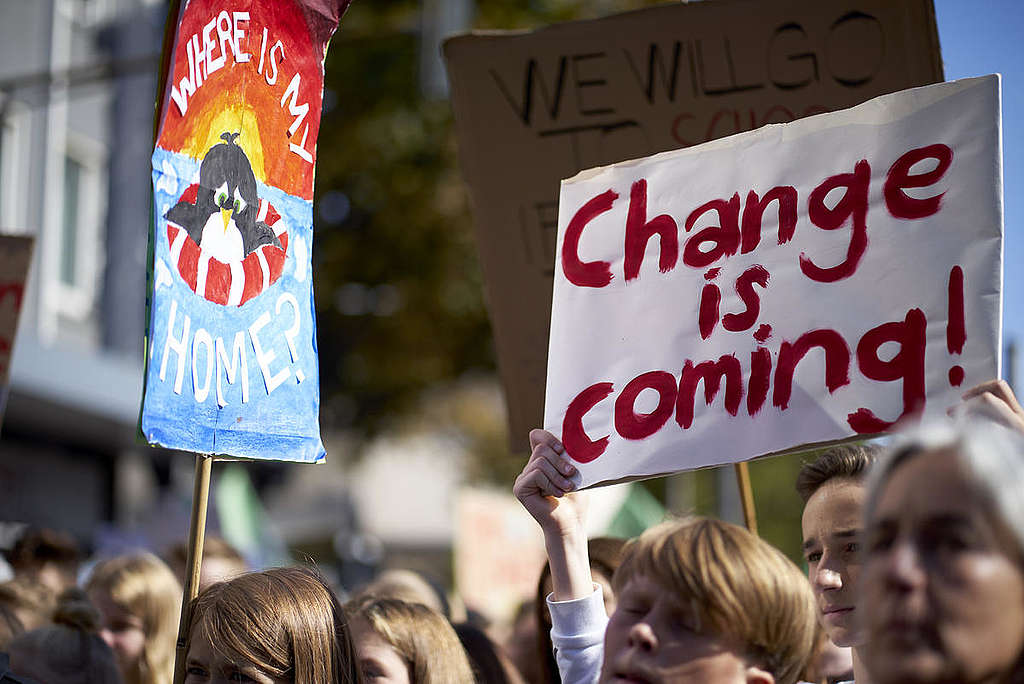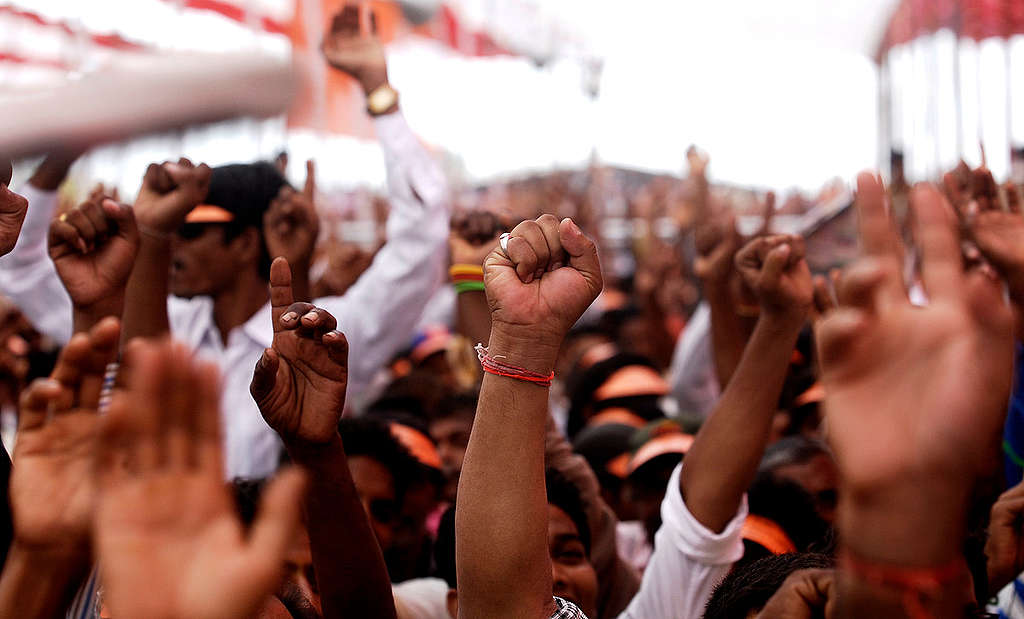
A couple of weeks ago, the media picked up on an unusual story. The founder of a big outdoor brand pledged all of its equity to fight the climate crisis, saying that: "Instead of exploiting natural resources to make shareholder returns, we are turning shareholder capitalism on its head by making the Earth our only shareholder"
In these gloomy days when the symptoms and consequences of the climate and biodiversity crisis are more evident than ever, the fact that the mainstream media picked up on a story that challenges our broken system and offers an alternative is a much needed ray of hope – even if the focus was more on the who, than on the what or the why.
Across the globe, the current socio economic system is starting to be questioned; occasionally by media outlets or through single company initiatives, but more frequently by those who are meant to shape the future of our planet, our youth in the global majority. They are taking action, raising their voices and openly challenging modern neo-liberal capitalism, from unpaid work to corporate exploitation and environmental destruction. Young people believe that a better collective future is possible for people and the planet and are fighting to spread the message. They are starting to connect our current profit driven system, based on infinite growth and massive extractivism that mostly benefits the elites, with the rise of inequality and the systemic and environmental crisis we are witnessing today.
The environmental movement is also connecting the dots. It's clear that we can't stay only in the "environmental lane" if we want to tackle the intertwined and complex system behind the status quo, that we need to go to the root causes of the climate and biodiversity crisis. It is time to join forces with academia, artists, activists and social movements that are changing the system on the front line, such as Fight Inequality Alliance and the Global Tapestry of Alternatives. It is time to make the invisible, visible, and the impossible, possible.
Thus, yes! there are reasons to be hopeful and to feel we have the agency to act. We have momentum! Societal conversations about alternative futures that put climate justice at the core and would make the current system obsolete are gaining traction. For some, the first step is cancelling debt payments for countries in the global south. This could be the fastest way to move away from extractivism, free up resources to invest in the collective well-being of these countries and tackle the climate and biodiversity crisis. Others talk about progressive taxes on the wealth that is unfairly concentrated in polluting corporations and powerful elites and nations, to fund initiatives that reduce our impact on the environment and promote the well-being of the global majority and the planet. This will also mean the end of public subsidies for fossil fuel companies among others, that are environmentally or socially harmful. There is also a thriving conversation about moving beyond GDP and its paradigm of development and growth at any cost, and towards better measures of a successful society that account for social and environmental well-being and equality, instead of focusing on the monetary value of goods and services alone. This would allow us to prioritise what we value in society: care, access to food and education, a better health system and a decent living, and to make decisions with present and future generations in mind so that we lay the groundwork for a better future.

But it is not all talk. Change is happening, alternatives already exist and are many and diverse, depending on the context and realities. From the communities building their resilience, whether they are driven by cooperation and collaboration, working to preserve their natural and cultural heritage, putting indigenous and local knowledge at the centre of their decision making, or securing their sovereignty for the production of energy and food, to companies willing to establish a clear purpose that goes beyond generations.
A green, fair and peaceful future is in the making! One built on togetherness and justice and our unique ability as humans to collaborate and imagine. A future where the well-being of people and the planet come before profit and infinite growth. A more equitable, pleasant and kinder world. Elites understand that our world is on the brink of a deep transformation. What they might have not yet realised is that it is in the hands of all of us, the global majority, to shape it. So here is where each of us has a choice, individually and as a collective: apathy or action, despair or hope, timidity or courage, pessimist or optimist, doomer or dreamer. Which are you?
Dare to dream. Join the conversation.
P Tejón Carbajal is the Global Campaign Leader for Alternative Futures project team






